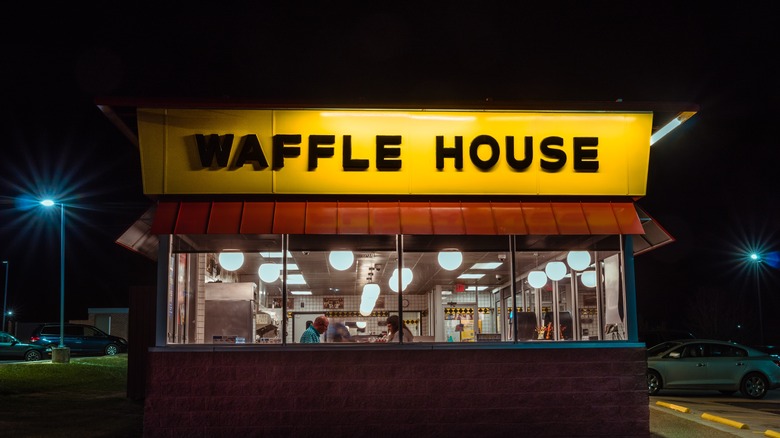Waffle House Workers Went On Strike For Fair Pay And Safer Conditions
Waffle House workers in Columbia, South Carolina, went on a three-day strike starting Saturday to protest working conditions and unfair pay. Employees at the 428 Garners Ferry Road location walked out at 10 a.m., demanding changes to their dangerous working environment, low wages, and poorly-scheduled hours. The strike is supported by the Union of Southern Service Workers and comes on the heels of a petition to management presented by the union. That petition was issued on July 1; Union representatives say Waffle House has still not responded as of this writing.
Workers are concerned about their safety, as shootings and violent incidents have been reported at the location. Employee Marshawna Parker reported hearing gunshots on more than one occasion, and others have spoken of customers throwing things at them. Naomi Harris, who also works there, told of a customer who went to get his gun when he was served hash browns instead of grits. Employees have requested a more regular security presence at the restaurants. Columbia's Waffle House workers also object to the company's practice of subtracting a "meal deduction" from their wages — a practice of taking $3 to $6 out of employees' paychecks to cover a meal at the restaurant during their shift, whether or not they eat that meal.
A newly-formed union
"Waffle House is proud of its long record of effectively addressing any concerns our Associates report to us. We intend to do that directly with our Associates," Njeri Boss, Waffle House's Vice President of Public Relations, stated in an email to Nation's Restaurant News.
More and more restaurant workers have unionized in recent months, and this strike demonstrates the growing importance of organized labor as a force for change in chain restaurants. Starbuck's struggle with its unions is well known and has drawn attention to the concerns of workers.
The union representing the Waffle House employees, the Union of Southern Service Workers, was founded in South Carolina's capital in November of last year. The organization developed as an offshoot of Raise Up the South and is formally affiliated with the Service Employees International Union. The USSW represents a wide range of employees in sectors that traditionally pay low wages. Southern restaurant workers have had a particularly hard time finding representation in part because the National Labor Relations Act does not apply to tipped workers. This new union is an attempt to fill in some of the gaps in bargaining power experienced by those whose jobs slip through the cracks of existing laws and provisions.

